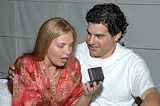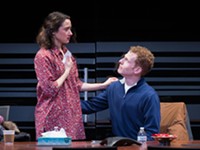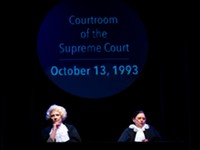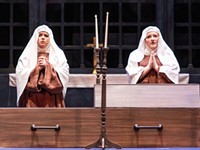JCC's "Ancient History"
A Jew and a Catholic wrestle with their relationship
By Erin Morrison-Fortunato[
{
"name": "500x250 Ad",
"insertPoint": "5",
"component": "15667920",
"parentWrapperClass": "",
"requiredCountToDisplay": "1"
}
]
A harrowing History
Theater
Here's a little ditty 'bout Jack and Ruth. OK, that's not exactly how the song goes, but it's close enough. Jack is a lapsed Catholic and a poor, but proud, high school teacher. Ruth is a polished, wealthy woman conflicted about her faith as a Jew. The two of them, over the course of their six-month relationship, have become each other's whole world, reminding each other that they are the "same person." As the JCC's production of Ancient History opens, the couple dances cheek-to-cheek, cooing and cuddling, dipping and swaying. They are obviously lovesick.
It is Ruth's 35th birthday and, despite the impending arrival of guests, the two can't manage to put any clothes on. After a day-long sex marathon, the couple still lounges about in lingerie and boxer shorts, hesitant to make the bed. As the plot unfurls, and a proposal is proposed, the couple must face their differences and decide if they are stumbling blocks on the path to happiness, or road blocks that will end their pursuit.
Although the show claims to be a "witty, funny, and insightful battle of the sexes," it is instead a confusing, meandering, and maddening series of skirmishes. Playwright David Ives attempts to create a puzzle. Repeatedly, throughout the play, in the middle of the action, a phone rings. The sound of this phone is so horrific, so skull-shatteringly annoying, that it frightened theatergoers to the point of jumping from their seats. The phone's ring is supposed to signal the end to the scene in progress and a switch to an entirely different, yet seemingly related scene. In the end, it seems that these scenes are alternatives to the same situation --- basically choose-your-own-adventure scenarios. When the play is over, it's up to the audience to piece together the parts into a sensible whole.
While this is an interesting arrangement, the execution must be perfect in order to help the audience understand the playwright's intentions. It must be immediately established that the phone's ring indicates a shift, a change. If this isn't, the audience is left confused. While director David Runzo makes an honest attempt at this, the horrific noise of the ringing is so disturbing that the audience spends most of its time trying to prepare itself for the next unexpected disturbance, making it nearly impossible to pay attention to the characters.
The impeccable set mirrors the play's arrangement. The foreground appears to be an average apartment, featuring a bed with disheveled sheets, an armchair under which a pair of dirty socks have been thrown, a dress hanging from the doorframe, and an open bottle of champagne. The background is of greater interest. Dark wood frames stand and hang at odd angles about the stage. Some are the size of picture frames, some the size of windows or doors, but each represents a new view of the story, a change in perspective.
Ives does his best to create realistic-sounding dialogue for the couple, but the entire opening scene seems to be a competition between the two characters to decide who can use the biggest SAT words in the most obscure ways. But, when stripped down to the basics, they are discussing what the world would be like if everyone was as happy as they are. Ross Amstey as Jack and Tamara Farias Kraus as Ruth play the parts with enthusiasm, but, despite their efforts, come off as trying too hard to be natural with each other. Their interaction needs a spark, the chemistry that an infatuated couple has; the "I can't wait to get in your pants" glance and occasional goosing that lets a loved one know you care.
While the play is meant to explore the difficulties of a mixed relationship between Jew and Christian, the plot strays --- very little of the dialogue focuses on the couple's dogmatic differences. However, this may be the play's saving grace. This couple struggles with issues with which any couple can relate: fear of commitment, the ticking biological clock, and financial woes. See for yourself if Jack and Ruth's relationship, or this play, can be salvaged.
Ancient History | through October 29 | JCCCenter Stage, 1200 Edgewood Avenue | $22 | 461-2000, x. 235.
Latest in Theater
More by Erin Morrison-Fortunato
-
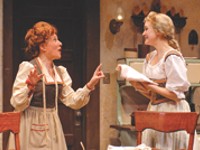
"The Underpants"
Jan 10, 2007 -
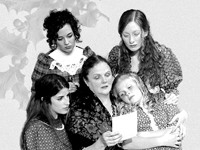
Blackfriars' "Little Women"
Dec 13, 2006 -
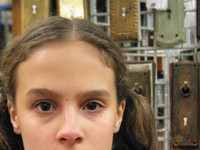
Shipping Dock's "Witness"
Nov 29, 2006 - More »
